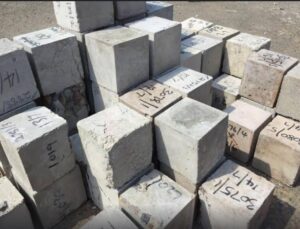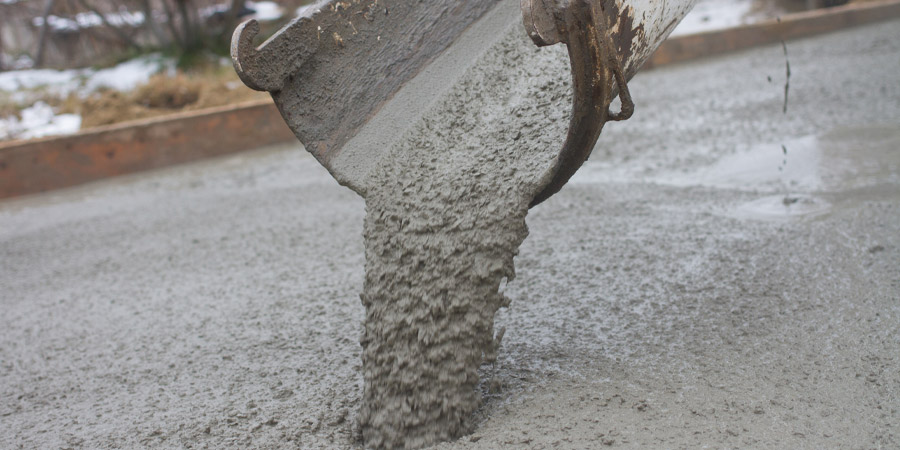Concrete is a mixture of several materials. At the hardened state, this heterogeneous material becomes stone-like mass. The extensive use of concrete in the construction field has made it a material of huge concern for engineers. To participate in the vast uses of concrete mix an engineer must know its properties. Here in this article, we have provided a glimpse of the properties of concrete.
Strength
Strength of concrete are of the following types:
- Compressive strength
- Tensile strength
- Flexural strength
- Shear strength
Compressive Strength
Two types of test specimens are used in Bangladesh -(1) Cube and (2) Cylinder.
The cube specimens of concrete of the desired proportion are cast in steel or cast iron molds, normally 6-inch cube. The standard cylinder specimen of concrete is 6 inch in diameter and 12 inches in height and cast in a mold generally made of cast iron;
Standard cubes and cylinders are tested at prescribed ages, generally, 28 days, with additional tests often made at 1, 3, and 7 days. The specimens are tested for crushing strength under a testing machine. The cube tests give much greater values of crushing strength, usually 20 to 30 % more than those given by cylinders.
According to British standard, the strength of a cylinder specimen is equal to three-quarters of the strength of the cube specimen.

Figure: Cube and Cylinder Specimens for Compression Strength Testing.
(Source:https://www.fhwa.dot.gov/publications/research/infrastructure/structures/06103/chapt3.cfm)
Effect of age on concrete strength:
Concrete attains strength with time. Ordinary cement concrete gains above 70 to 75% of its final strength within 28 days and about 90 to 95 % in the course of one year. It is often desirable to check the suitability of a concrete long before the results of the 28-day test are available. When no specific data on the materials used in making concrete are available, the 28-day strength may be assumed to be 1.5 times of the 7 days’ strength. Tests have shown that for concrete made with ordinary Portland cement the ratio of the 28 days to 7 days’ strength generally lies between 1.3 to 1.7, and the majority of the results fall above 1.5. The extrapolation of 28 days’ strength from the 7 days’ strength is, therefore quite reliable;
The rate of gain of strength of the different type of cement concretes are shown in the figure below
Tensile strength
Concrete is very weak in tension. The tensile strength of ordinary concrete ranges from about 7 to 10 percent of the compressive strength.
Flexural strength
The flexural strength of plain concrete is almost wholly dependent upon the tensile strength. However, experiments show that the modulus of rupture is considerably greater than the strength in tension.
Shear strength
It is the real determining factor in the compressive strength of short columns. The average strength of concrete in direct shear varies from about half of the compressive strength for rich mixtures to about 0.8 of the compressive strength for lean mixtures.
Workability:-
The strength of concrete of a given mix proportion is very seriously affected by the degree of its compaction. It is therefore vital that the consistency of the mix be such that the concrete can be transported, placed and finished sufficiently easily and without segregation. A concrete satisfying these conditions is said to be workable.


